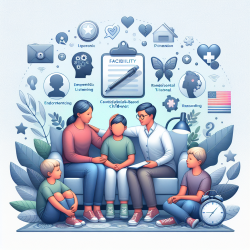The landscape of maternal health is complex and multifaceted, particularly when considering vulnerable populations such as migrants with insecure residency status. A recent study conducted in Sweden from 2000 to 2014 sheds light on the increased risks faced by these women during childbirth. This blog aims to provide insights for practitioners seeking to enhance their skills and improve care for this demographic.
The Study at a Glance
The research titled "Severe maternal morbidity among migrants with insecure residency status in Sweden 2000–2014: a population-based cohort study" analyzed data from the Swedish Medical Birth Register. It focused on births where the mother lacked a personal identification number, indicating insecure residency status. The study revealed that these women faced a 50% higher risk of severe maternal morbidity (SMM) compared to Swedish-born women.
Key Findings
- Migrants with insecure residency had a 50% higher risk of SMM than Swedish-born women (adjusted risk ratio [aRR]=1.54).
- The risk was even higher when excluding transfusion-only cases (aRR=1.88).
- Migrants with insecure residency also had a higher risk of SMM compared to those with long-term residency (aRR=1.42).
- Preeclampsia and postpartum hemorrhage risks were lower, yet the progression to severe conditions was more frequent.
Implications for Practitioners
This study underscores the importance of comprehensive maternity care access for migrants with insecure residency. Practitioners can play a crucial role in mitigating these risks through several approaches:
Cultural Competency and Sensitivity
Cultural barriers often hinder effective communication between healthcare providers and migrant patients. Practitioners should strive to understand cultural differences and provide care that respects diverse backgrounds.
Advocacy for Policy Change
The findings highlight the need for policy changes that ensure equitable access to maternity care regardless of residency status. Practitioners can advocate for policies that remove legal barriers and promote universal healthcare access.
Continued Education and Training
Pursuing further education on the unique challenges faced by migrant populations can equip practitioners with the knowledge needed to address these issues effectively. Engaging in webinars, conferences, and publications focused on migrant health can be beneficial.
The Path Forward
The study's results call for an urgent reassessment of healthcare practices and policies affecting migrants with insecure residency status. By understanding and addressing the specific needs of this group, practitioners can contribute to reducing severe maternal morbidity rates and improving overall maternal health outcomes.










